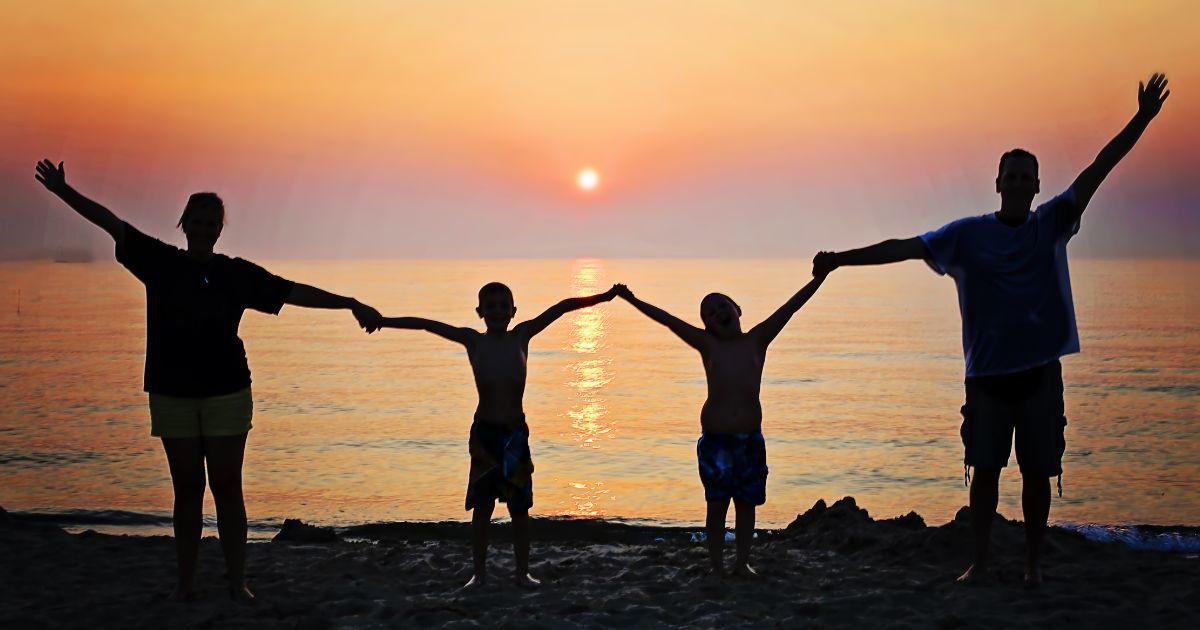Having a break and going somewhere to relax is something we need to do once in a while. For many, vacation simply means visiting places we’ve never been and usually spending time with our family.
We always dream of having a vacation somewhere, but we dread the expenses. Going somewhere with your whole family will require you to spend some money for food, fare and gas if you use your car, house or tent fees, etc.
If you are someone who’s also searching for ways to save money in general, you can check out our blog about saving money tips here.
In this blog, we will go through some of the tips you can do to save money when going on a vacation with your whole family.
1. Plan your travel ahead of time
Planning is very important when you want to go to a place unfamiliar to you.
Planning involves knowing the number of people coming. How many kids and adults are coming with you? Things you might need to bring. Just list all these things down but don’t be overwhelmed.
You can adjust depending on what you want or need. List all the tourist spots you want to visit and create an itinerary.
2. Do your Research
Find out more about the place by checking online. Know the best time to visit a specific spot.
Check opening and closing times for amusement parks or any establishment you want to visit. Check out different housing options if you will spend the night there. Compare prices, and check if they offer food and other services.
Learn more about the place as well. Ask other people who may have visited the place already and ask for their recommendations.
You can answer these questions in your research.
- What are the famous tourist destinations in the place?
- Best time to visit a particular place?
- Cheapest but most comfortable place to stay?Check the reviews of the business.
- What are the best and most affordable restaurants?
- How much will the entrance fees be for some tourist destinations? Know how much is the rental fee for some activities like boating or biking.
- Find free places in the area, so you don’t have to pay that much for entrance fees.
Knowing the cost will help you budget your money accordingly.
3. Buy food from a grocery store
This tip will depend on where you’re going and based on your research about the place where you want to go.
Check if this is far from a market or if there will be no grocery stores nearby. It’s best to buy your food from a grocery store or market and bring it with you because certain food may be very expensive if it’s too far from the city.
Part of your plan should also be your food plan. So if you want to save money, then buy your food and do the cooking. Plan your meal so you’ll know what to buy. You can also research if the place you’ll be staying offers cooking of food as a service.
We experienced this on our recent vacation. The resort offers cooking of food at a minimal cost. So we bought fish and just gave it to them to cook for only fifty pesos.
Depending on your travel time, cook your food instead of eating in a restaurant along the way. This is also a fun part of the trip. Pack your own food and find a good spot along the way where you can take your breakfast or lunch.
4. Find out what’s the best route to take
One way to save gas, especially now that gas prices are rising, is to check the best route. Find out if there are short-cut routes.
Check out the distance and compare. When finding alternative routes, you also have to check the status of the road.
Some alternative roads may not be fully developed here in the Philippines, so do your research before deciding to take that route. It might cost you more if the road is not yet completely developed/ or cemented.
5. Create a checklist of the things you need to bring
Creating a checklist is very helpful to avoid missing essential things and end up buying them along the way.
Some tourist destinations sell products at a very high price. Creating a checklist is also very important if you have kids. This checklist can also help you know what you brought and to avoid leaving things in your transient house.
6. Set a budget
Knowing how much you will spend for the trip will also help you strategize your budget.
If you know how much money you have, you can minimise the eating out. You will avoid spending on things that are not part of the plan or buying items that are not necessary.
You have to plan how much money should be spent on food and consider entrance fees and other fees that might be needed. Set aside different amounts for different activities you will be doing.
Don’t forget to set aside money for any unexpected expenses or just buffer money.
7. Bring your first aid kits and medicines
Bring your first aid kits and medicines, especially if you’re travelling with your kids, because it might be hard to find these depending on where you’re going.
It might take hours to drive to a nearby pharmacy to get things like a thermometer, paracetamol, or anti-allergy medicines.
It pays to be ready not just considering the cost but also for your family’s wellness.
8. Bring an electric Stove or any cooking devices
Bring your cooking devices if you plan to save more money on food. If you have a mini electric stove and you know there’s access to electricity where you’re going, then bring it so you can cook your own food. You can get a rice cooker and electric water pot if you have them.
You can also bring a portable stove, normally used for camping.
9. List down Other Options
You must list all possible places you can stay. Listing potential houses or resorts can help you adjust and save time. Find other alternatives all the time.
Always look for another place just in case unexpected things happen, or if you realise that the place you reserved is not what you expect it to be, then you always have other options. Just don’t pay reservations upfront for any of them.
The same thing with the places you visit. Find out if there are other places you can still visit near the area just in case the other one is close for whatever reason.
10. Bring your leisure things
Depending on where you’re going. If you will go swimming, make sure you bring the floaters you have at home instead of buying a new one in the resort. These things are usually more expensive if purchased inside the vicinity of a resort or establishment.
When going to the beach, you can bring your own goggles or swimsuits so you won’t have to buy new ones because you won’t use them that often. It’s also more expensive if you buy it in a resort.
11. Avoid holiday season travel
Avoid travelling during the holiday season. Hotel costs and fees are higher during peak seasons. It’s the simple rule of supply and demand.
So schedule your vacation strategically, and besides, you can enjoy the place more if there are fewer people. You can take photos in good spots if there are lesser people around.
Conclusion
So those are some tips I can give if you’re travelling or going on vacation with family members or friends. These tips are applicable if you’ll be travelling with your own vehicle.
Taking a vacation requires money but doesn’t have to be so expensive. You just have to plan, do your research and follow all our other tips above to minimise the cost but still be able to enjoy and unwind.
Enjoy your vacation.

